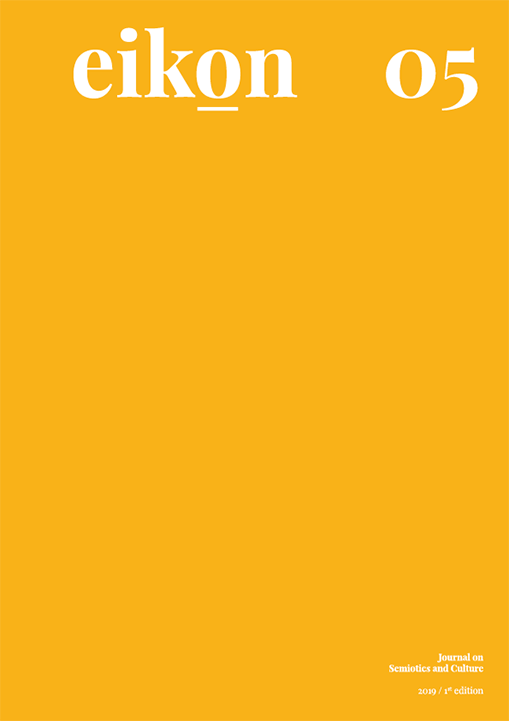On ‘Portugueseness’: A Semiotic Approach
Palavras-chave:
Portugueseness, national identity, cultural semioticsResumo
What is ‘Portugueseness’? From a constructionist and semiotic perspective, in this paper I deal with this contested and fuzzy concept, which although many criticize as a fallacious attempt do describe a sort of reality that does not exist, is however a meaningful concept that many employ in order to guide social action. As I argue based on the work of Geertz and Eco, ‘Portugueseness’ needs to be conceived not referentially, but as a discursive entity that refers to a cultural unit that is distinct from other units that are meaningful when mapping the complex continuum of national identities. After discussing the concept from a theoretical perspective, I focus on three of its main dimensions: its meaning, its uses and its content.
Referências
Anderson, Benedict (1983): Imagined Communities. London: Verso.
Assmann, Jan (1999): Das kulturelle Gedächtnis. Munich, C. H. Beck.
Berger, Peter & Luckmann, Thomas. (1966): The Social Construction of Reality. London: Penguin.
Bruner, Jerome (1991): The Narrative Construction of Reality. In Critical Inquiry, 18.
Burke, Peter J. & Stets, Jan E. (2009): Identity Theory. Oxford: Oxford University Press.
Coupland, N. (2007) Style. Language Variation and Identity. Cambridge: Cambridge University Press.
Cunha, Luís (2006): A identidade da nação: encenação e narrativa. In J. Miranda & M. I. João (org.): Identidades Nacionais em debate. Lisbon: CELTA.
De Sousa, Vítor (2017): O Estado Novo, a cunhagem da palavra ‘portugalidade’ e as tentativas da sua reabilitação na atualidade. In Estudos em Comunicaçao, n. 25, vol. 1, p. 287-312.
– (2014): O equívoco da portugalidade. In M. M. Baptista, J. E. Franco & B. Cieszyńska (org.): Europa das nacionalidades. Imaginários, identidades e metamorfoses políticas. Lisbon: Grácio.
De Sousa, Vítor & de Lemos Martins, Moisés (2013): A ‘portugalidade’ no discurso parlamentar português: Assembleia Nacional (1935-1974) e Assembleia da República (1976-2012). In Z. Pinto-Coelho & J. Fidalgo (Eds.): Comunicação e Cultura: II Jornada de Doutorandos em Ciências da Comunicação e Estudos Culturais. Centro de Estudos de Comunicação e Sociedade, Universidade do Minho, p. 87-103.
Eco, Umberto (1976): A Theory of Semiotics. Indiana: University of Indiana Press.
– (1964): Apocalittici e integrati. Milan: Bompiani.
Geertz, Clifford (1973): The Interpretation of Cultures. New York: Basic Books.
Gómez García, Pedro (2012). Las ilusiones de la identidad. Madrid: Cátedra.
Hofstede, G. et al. (2010): Cultures and Organizations. New York: McGraw-Hill.
Lorusso, Anna Maria (2010): Semiotica della cultura. Roma-Bari: Laterza.
Miranda, Joana (2006): A nação portuguesa: memória e construção simbólica”. In J. Miranda & M. I. João (org.): Identidades Nacionais em debate. Lisbon: CELTA.
Searle, John. (1995): The Construction of Social Realtity. London: Penguin.
Sobral, José Manuel (2012): Portugal, Portugueses: Uma Identidade Nacional. Lisbon: Fundação Francisco Manuel dos Santos.
Villaverde Cabral, Manuel (2003): A Identidade Nacional Portuguesa: Conteúdo e Relevância. In. DADOS – Revista de Ciências Sociais. Rio de Janeiro, Vol. 46, nº 3, p. 513-533.
Wendt, Alexander (1999): Social Theory of International Politics. Cambridge: Cambridge University Press.
Downloads
Publicado
Edição
Secção
Licença
Autores que publicam nesta revista concordam com os seguintes termos:
- Autores conservam os direitos de autor e concedem à revista o direito de primeira publicação, com o trabalho simultaneamente licenciado sob a Licença Creative Commons Attribution que permite a partilha do trabalho com reconhecimento da autoria e publicação inicial nesta revista.
- Autores têm autorização para assumir contratos adicionais separadamente, para distribuição não-exclusiva da versão do trabalho publicada nesta revista (ex.: publicar em repositório institucional ou como capítulo de livro), com reconhecimento de autoria e publicação inicial nesta revista.
- Autores têm permissão e são estimulados a publicar e distribuir o seu trabalho online (ex.: em repositórios institucionais ou na sua página pessoal) a qualquer ponto antes ou durante o processo editorial, já que isso pode gerar alterações produtivas, bem como aumentar o impacto e a citação do trabalho publicado (Veja O Efeito do Acesso Livre).

